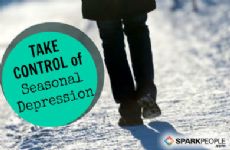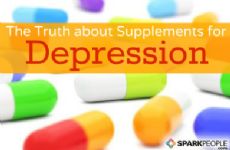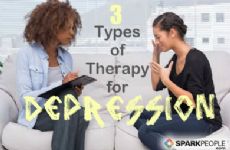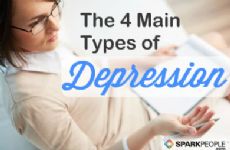|
Last week, I said that, since it seems to be occupying just about all of my attention anyway, I would try to blog about my efforts to come to terms with the depression and anxiety that seem to be dominating my life right now. Here’s installment No. 1 in this series of blogs, in which Mr. Mopey attempts to explain his admittedly strange approach to this project. I am depressed--no doubt about it. I want this to change as soon as possible, and I imagine there are a few recent victims of my irritability around here who would like that too. By education and by trade, I am also a philosopher and a psychologist/lifecoach, two activities which have involved a lot of thinking about this whole depression business. So, I would like to use these skills and resources to help myself find a "cure" for what ails me. I'll be happy to take some pills in the meantime, if they help--they aren't helping at the moment, but they have in the past and they may again. I might even be willing to try ECT. But this blogging about my depression isn't going to be about my pill taking and its results. It's about playing with some different ideas and ways of thinking, to see if any of them can help. Some of them may sound a little strange, so be forewarned... There is a method of discussion in both philosophy and psychology called “dialectics”, of which I have long been a fan (despite the fact that most people get all glassy-eyed whenever I try to explain myself). In a nutshell, dialectics operates on the assumtion that every concept contains its opposite within itself, and that this tension between internal contradictions (thesis and antithesis) is what makes development of new ideas (synthesis) possible. It also makes change inevitable. To put it more simply, "depression" couldn't exist as a concept (or be "cured") if the opposite concept ("non-depression") didn't also exist. And since both of these concepts are always changing, any change in one will necessitate a change in the other. In my opinion, this basic approach has at least two very important implications for anything I can say (or do) about my own depression: Right now, for example, the concept of "depression" refers to a collection of commonly experienced emotional, physical, and cognitive problems that almost everyone has quite frequently. None of these things is unique to "depression." In order to get diagnosed as clinically depressed, you have to have a certain number of these problems every day within a certain time frame, and they have to interfere with your functioning in a signficant way. The more problems on this list you have, the more serious your depression is said to be. But what would happen if we all agreed to move some of the symptoms on the "depression" list off that list and onto the "non-depression" list? If it takes at least 4 symptoms to be diagnosed with major depression, for example, what if we moved all but 3 of the symptoms off the list. Could that cure my depression (and everyone else's)? This probably sounds a lot like asking how many depressed angels can dance on the head of a pin, or what sound is made by one hand clapping. But it's not. I've definitely noticed, since I started having problems with depression years ago, that I'm much more likely to stay stuck in the problem once an episode starts up simply because, when I'm depressed, my natural inclination is to look at every thing I do and say "Oh, that's my depression causing that." If some of those symptoms weren't on the list, I might just be more inclined to do something about many of the problems instead of rationalizing them as symptoms, and waiting until my "illness" is cured. So, one thing I plan to do here in this series of blogs is to test out this hypothesis by redefining the symptoms of depression for myself to see what happens. Maybe, for example, one reason depression can be so resistant to change is that it is defined as a medical problem, when in fact it's not, or at least not mainly. What if it's mainly a social problem, or a spiritual problem? Or what if depression isn't a problem at all--what if non-depression is the problem? What if, objectively, the negativity of depressed people is more realistic than the cock-eyed optimism of non-depressed people, and the lack of interest in ordinary things is simply the natural boredom of an observant person? I'm not actively supporting this idea, of course. No one who knows what depression can actually do to people will make light of it like this. I just mean to point out that "depression" is a loaded concept that depends a lot on the values of a culture--more than it depends on innate biological "reality." Sadness is only pathological when the particular life you lead really "should" make you happy, because you have what your culture says is necessary for happiness. But any time you see the word "should" in this kind of discussion, that should be a big red flag--it's almost always evidence of a cultural bias. That brings us to the question: How does it help anyone--the depressed individual or society as a whole--to define depression as an illness? Don't we (as individuals and groups) need to acknowledge and accept the "dark side" of our human condition in order to appreciate our other possibilities--and to understand the dangers of denying the darkness in ourselves or others? Should we really be in such a big hurry to "cure " people who makes us aware of this darkness through their symptoms? Do we really believe that it's "normal" to be positive, hopeful, and upbeat most of the time? What kind of stress and self-recrimination does THAT cause? Likewise, what sense does it make to try to confine these and other such questions to doctor's offices and psychological treatment rooms, when dealing with inner darkness is something everyone needs to know how to do? Yes, we need to protect people from harming themselves or others in the midst of a serious depression, and we naturally want to alleviate as much unnecessary and unproductive suffering as possible, especially if all it takes is a pill and/or a few sessions of psychotherapy. But don't we also need widespread public discussion about when common human feelings and experiences ought to be considered abnormal, and when they ought to be taken as signs that something is out of kilter in our common life? I'll admit that, when I'm in the middle of a depressive episode, like now, it's pretty hard to believe that my depression is really part of a normal and necessary developmental process, or that it could be good for me and for my society. For one thing, it can wreak havoc on all my accomplishments so far, and my plans for the future. Nor do I often feel like talking about the intimate personal details involved. It just feels like something is wrong, not like I'm doing something that will be positive in the long run. But what if these consequences and negative feelings are due to not understanding the relationship between depression and progression? What if I suffer more during a depression because I don't know how to use the pain, extreme emotionality, confusion, and lack of motivation to deepen my capacity for "creative suffering" and instead, stay trapped in cycles of repetitive, unproductive, private suffering. I know this is true when it comes to practical life knowledge--the best learning is from your own mistakes, if you learn how to use them. But I haven't really thought of it in terms of psychological/spiritual growth and depression until now. Suffering itself is neither avoidable nor undesirable--that's a core message of nearly every spiritual tradition. You can't see the light until you've spent some time in the darkness, and that's painful. But it's a lot more painful and disabling if you can't get anything out of it or use it to help someone else--if you let your suffering remain uncreative. What if I could get back to normal functioning just by learning how to use the suffering of depression and anxiety creatively. Isn't repetitive, unproductive suffering the kind that's more likely to make me lose interest in my own life, and feel like nothing is worth the effort? Isn't it much more likely that whatever suffering I endure will be unproductive if I keep it to myself, or between me and my doctor? Is it possible that a period of depression could be much less devastating or debilitating if I had some way of understanding its uses and potentials, and putting it in some sort of more positive, public context so it didn't feel so much like meaningless personal mayhem? Would this be true for you, too? That's what I want to find out, this time around. What does it mean to turn a “negative” like depression into something “positive”? Is this just a word game? What does this look like in a real human life, and more specifically, in my life at this moment? One thing it doesn’t mean is simply struggling against my symptoms and keeping them private—that’s not a dialectical approach, and it’s probably not necessary anyway. Given enough time, my depression will go away all by itself even if I do nothing. And then it will come back again, as it has many times, despite years of therapy and all kinds of medications. To use this episode of depression as an opportunity to change this cycle, I will have to take what depression gives me and use those "givens" to accomplish something new. I won’t know what that something new is until it shows up (if it does). What tools do I have to work with? What does my depression “give” me? One thing it's giving me right now is a deep lack of interest in the things that normally interest me--it's a real struggle some days even to get out of bed, eat, or ride my bike, much less do some work or clean house. It also turns me into someone who is very self-absorbed, devoting almost all my attention to observing small changes in my own feelings, thoughts, moods, and behaviors--things that I would normally find far less interesting than the people and world around me. Every little bit of forgetfulness or loss of concentration is a sign of impending senility; every less than desirable choice is a sure sign that I will never make a good choice again; every ache or pain is proof that I’m over the hill. Good memories are just evidence that the best of my life is already over; bad memories are proof that I’m really a fraud and not at all the person I pretend to be, to myself and others. I spend hours every day sitting around worrying about these and similar things, and meanwhile, doing nothing much at all. I cut myself off from the world of normal people who pursue their survival and their goals however they can, and isolate myself. Worst of all, all of this feels right to me, more real than any feelings of interest, satisfaction, meaning, or happiness I might have when I’m not depressed, and more real than any intellectual criticism I could make of all this obviously wrongheaded, all-or-nothing thinking. Being “depressed” is what feels most real to me, the rest is all mere whistling past the graveyard. Where to from here? I have to admit, at this point, that this doesn’t sound like much to work with, lol. To transform these dark thoughts and feelings into creative agents, it seems to me I first have to learn how to travel differently. Instead of knowing my destination in advance, I'll have to follow T. S. Eliot's advice from East Coker: I said to my soul, be still, and wait without hope For hope would be hope for the wrong thing; wait without love, For love would be love of the wrong thing; there is yet faith But the faith and the love and the hope are all in the waiting. Wait without thought, for you are not ready for thought: So the darkness shall be the light, and the stillness the dancing. Whisper of running streams, and winter lightning. The wild thyme unseen and the wild strawberry, The laughter in the garden, echoed ecstasy Not lost, but requiring, pointing to the agony Of death and birth. You say I am repeating Something I have said before. I shall say it again. Shall I say it again? In order to arrive there, To arrive where you are, to get from where you are not, You must go by a way wherein there is no ecstasy. In order to arrive at what you do not know You must go by a way which is the way of ignorance. In order to possess what you do not possess You must go by the way of dispossession. In order to arrive at what you are not You must go through the way in which you are not. And what you do not know is the only thing you know And what you own is what you do not own And where you are is where you are not. In more prosaic terms, what I’m planning to do is to try thinking of each of my major depression and anxiety symptoms--loss of interest, self-absorbtion, and social isolation-- as messages from my potential future self instead of as problems to be overcome. Instead of “opposing” them, I’ll try to accept them as appropriate reactions to my situation, and understand what they are telling me about how I can try to make some changes. Kind of scary, since I have no idea where this will lead. Maybe I'll get lucky and the meds will kick in before I have to go too far down this road, lol. Whatever happens, I'll work on being a little less abstract and more practical in my next blog... So, what do you think? Does this make any sense to you? How do you look at your problems/symptoms when you get depressed or anxious? |
Related Entries
More From SparkPeople
|























